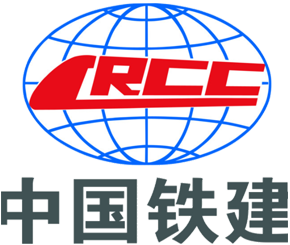
The Amu Darya, also called the Amu, də Āmu Sind, the Amo, and historically the Oxus, is a major river in Central Asia, which flows through Tajikistan, Turkmenistan, Uzbekistan and Afghanistan. Rising in the Pamir Mountains, north of the Hindu Kush, the Amu Darya is formed by the confluence of the Vakhsh and Panj rivers, in the Tigrovaya Balka Nature Reserve on the border between Afghanistan and Tajikistan, and flows from there north-westwards into the southern remnants of the Aral Sea. In its upper course, the river forms part of Afghanistan's northern border with Tajikistan, Uzbekistan, and Turkmenistan. In ancient history, the river was regarded as the boundary of Greater Iran with Turan, which roughly corresponded to present-day Central Asia. The Amu Darya has a flow of about 70 cubic kilometres per year on average.

Central Asia is a subregion of Asia that stretches from the Caspian Sea in the southwest and European Russia in the northwest to Western China and Mongolia in the east, and from Afghanistan and Iran in the south to Siberia in the north. It includes Kazakhstan, Kyrgyzstan, Tajikistan, Turkmenistan, and Uzbekistan. The countries as a group are also colloquially referred to as the "-stans" as all have names ending with the Persian suffix "-stan" in both respective native languages and most other languages. Central Asia borders Eastern Europe to the west, West Asia to the southwest, South Asia to the southeast, North Asia to the north, and East Asia to the east.

The economy of Kyrgyzstan is heavily dependent on the agricultural sector. Cotton, tobacco, wool, and meat are the main agricultural products, although only tobacco and cotton are exported in any quantity. According to Healy Consultants, Kyrgyzstan's economy relies heavily on the strength of industrial exports, with plentiful reserves of gold, mercury and uranium. The economy also relies heavily on remittances from foreign workers. Following independence, Kyrgyzstan was progressive in carrying out market reforms, such as an improved regulatory system and land reform. In 1998, Kyrgyzstan was the first Commonwealth of Independent States (CIS) country to be accepted into the World Trade Organization. Much of the government's stock in enterprises has been sold. Kyrgyzstan's economic performance has been hindered by widespread corruption, low foreign investment and general regional instability. Despite those issues, Kyrgyzstan is ranked 70th on the ease of doing business index.
Westinghouse Electric Company LLC is an American nuclear power company formed in 1999 from the nuclear power division of the original Westinghouse Electric Corporation. It offers nuclear products and services to utilities internationally, including nuclear fuel, service and maintenance, instrumentation, control and design of nuclear power plants. Westinghouse's world headquarters are located in the Pittsburgh suburb of Cranberry Township, Pennsylvania.

CITIC Group Corporation Ltd., formerly the China International Trust Investment Corporation (CITIC), is a state-owned investment company of the People's Republic of China, established by Rong Yiren in 1979 with the approval of Deng Xiaoping. Its headquarters are in Chaoyang District, Beijing. As of 2019, it is China's biggest state-run conglomerate with one of the largest pools of foreign assets in the world. In 2023, the company was ranked 71st in the Forbes Global 2000.

The Bakun Dam is an embankment dam located in Belaga District, Kapit Division, Sarawak, Malaysia, on the Balui River, a tributary or source of the Rajang River and some sixty kilometres east of Belaga. As part of the project, the second-tallest concrete-faced rockfill dam in the world would be built. It would generate 2,400 megawatts (MW) of electricity once completed.

PetroChina Company Limited is a Chinese oil and gas company and is the listed arm of state-owned China National Petroleum Corporation (CNPC), headquartered in Dongcheng District, Beijing. The company is currently Asia's largest oil and gas producer. Traded in Hong Kong and New York, the mainland enterprise announced its plans to issue stock in Shanghai in November 2007, and subsequently entered the constituent of SSE 50 Index. In the 2020 Forbes Global 2000, PetroChina was ranked as the 32nd-largest public company in the world.

China Petroleum and Chemical Corporation, or Sinopec, is a Chinese oil and gas enterprise based in Beijing. It is listed in Hong Kong and also trades in Shanghai.

The China National Petroleum Corporation (CNPC) is a major national oil and gas corporation of China and one of the largest integrated energy groups in the world. Its headquarters are in Dongcheng District, Beijing. CNPC was ranked fourth in 2022 Fortune Global 500, a global ranking of the largest corporations by revenue.
Kyaukphyu is a major town in Rakhine State, in western Myanmar. It is located on the north western corner of Yanbye Island on Combermere Bay, and is 250 miles (400 km) north-west of Yangon. It is the principal town of Kyaukphyu Township and Kyaukphyu District. The town is situated on a superb natural harbor which connects the rice trade between Calcutta and Yangon. The estimated population in 1983 was 19,456 inhabitants. The population of Kyaukphyu's urban area is 20,866 as of 2014, while Kyaukphyu Township's population is 165,352.

Cerberus Capital Management, L.P. is an American global alternative investment firm with assets across credit, private equity, and real estate strategies. The firm is based in New York City, and run by Steve Feinberg, who co-founded Cerberus in 1992, with William L. Richter, who serves as a senior managing director. The firm has affiliate and advisory offices in the United States, Europe and Asia.

Atkins was a British multinational construction, design, engineering and business services company. It was formerly listed on the London Stock exchange and had a London headquarters. During July 2017 the company was bought by SNC-Lavalin in a £2.1 billion deal which subsequently renamed to AtkinsRéalis in 2023.

Isabel dos Santos is an Angolan businesswoman, the eldest child of Angola's former President José Eduardo dos Santos, who ruled the country from 1979 to 2017.
Energy in Kazakhstan describes energy and electricity production, consumption and import in Kazakhstan and the politics of Kazakhstan related to energy.

China Railway Construction Corporation Limited is a listed construction enterprise based in Beijing, China, that was the second largest construction and engineering company in the world by revenue in 2014.

The Qatar Investment Authority is Qatar's sovereign wealth fund. The QIA was founded by the State of Qatar in 2005 to strengthen the country's economy by diversifying into new asset classes. In October 2023, the QIA has an estimated $475 billion of assets under management.

Pacnet was a global telecommunications service provider between 2008 and 2015. It was formed from the operational merger of Asia Netcom and Pacific Internet on 8 January 2008. It was owned by a private investor group comprising Ashmore Investment Management Limited, Spinnaker Capital Limited and Clearwater Capital Partners. Its acquisition by the Australian telecommunications company Telstra was announced at the end of 2014, and completed in April 2015.

The Uganda Oil Refinery is a planned crude oil refinery in Kabaale village, on the Eastern shore of Lake Albert along the Hoima–Kaiso–Tonya Road, Buseruka Sub-county, Hoima District, Western Region, Uganda, near the border with the Democratic Republic of the Congo. It has been planned since 2010. Community opposition was repressed early on. After 5 years of negotiations the Albertine Graben Refinery Consortium (AGRC) formed in 2018 and agreed to design and build the refinery.
The Kampala–Jinja Expressway, also known as the Jinja–Kampala Expressway, is a proposed four-lane toll highway in Uganda, linking Kampala, the capital and largest city of Uganda, with the city of Jinja in the Eastern Region of Uganda.

PAG is an Asian investment firm that manages multiple asset classes, including private equity, private debt, real estate and hedge funds. It is considered one of the largest private investment firms in Asia.
















